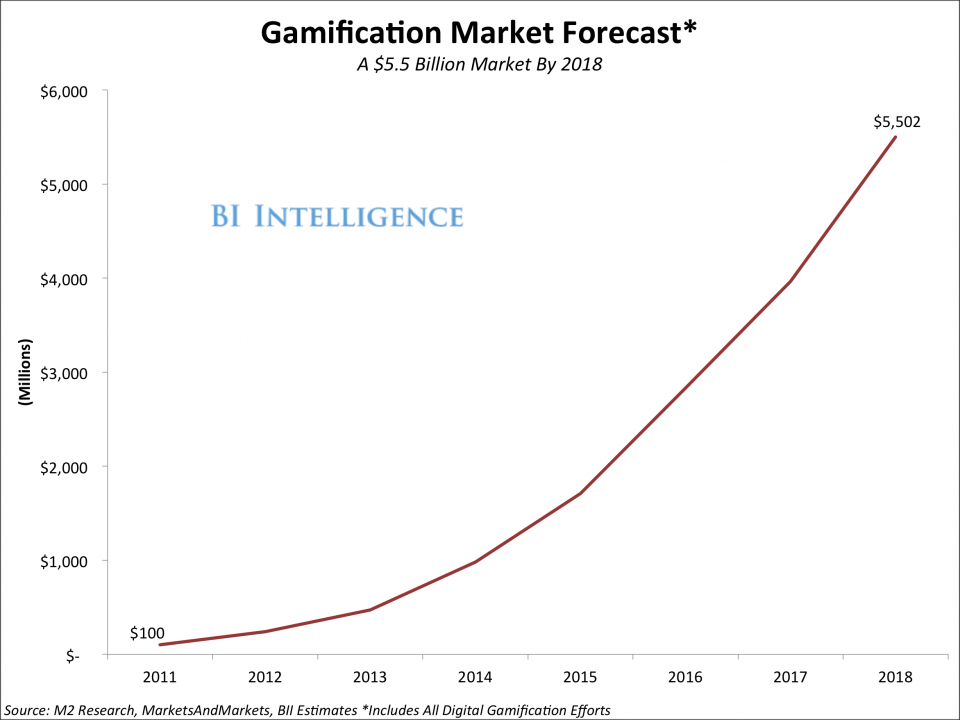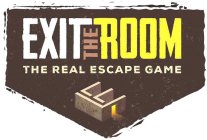For the past year or so, a new buzzword has emerged in the corporate offices of big businesses and industries. “Gamification” by definition is the use of game theory and game design to improve employees' work rate and motivation. It’s also an effective tool for engaging the customers in your brand, as well as marking you out with the games acting as a differentiator in a crowded marketplace.
As you can see from the graph below, gamification has enjoyed massive growth over the last decade. Presently aspects of gamification are being used across many company’s operational areas, including employee performance management, recruiting and customer engagement.

Gamification in Recruitment
The whole interview process is really about giving a candidate the possibility to self-evaluate. But reality is a different ball game altogether. Such is the pressure of toeing the line in order to secure employment, many people will have pre-planned their answers. This is totally self-defeating for both the candidate and the employer. Though your paper qualifications will get you so far, today’s employers are looking for more than certificates and degrees. They realise that finding someone who’s a “good fit” is probably the most important aspect of a new employees personality. Many of today’s jobs revolve around working within teams. So being able to spot the team player during the recruitment process is always going to be a huge time and money saver.
This is where gamification comes into play. The recruiter can intigrate all sorts of things into the interview process that highlight certain qualities on the fly, so to speak. The immediacy of introducing work related quest, behavioral test and interactive quizzes means that the candidate has to react there and then. This means that the recruiter gets to see the real person behind the corporate mask.
Why You Should be Thinking Of Using Gamification in Recruitment
If we analyse what the recruiters job entails, then we can see that he needs to be able to better understand the candidate. The more information he can glean, the easier it’ll be to make a choice later on. Not only does he need to understand the candidate’s previous experience, his behaviour, and ambitions, but more importantly, he wants to see if the prospective employee will be a good fit within the company structure. The same goes for the candidate. If we apply gamification to the initial interview process, we can see the following benefits:
-
A faster process to discover innovative thinking, time management and creativity.
-
The candidate can see how the company operates in vibrant new ways
-
Instantly see behavioural traits and capabilities through gameplay
-
Encourages greater interaction from the candidate. Makes the company more appealing.
Applying Gamification to Recruiting
Considering that the majority of millennials have been bought up attached to their smart mobile devices, playing online games and with the ever present social media buzzing in the background, then finding any form of gamification in the recruitment process when they attend a job interview, will not be any surprise for them. Here’s a list of some ways that you can link gamification to recruitment:
Leaderboards
Having these with any number of predefined goals, along with a scoring system, can help finding the right candidate much easier, as you can track the top performers.
Virtual Headhunting
Use online tools to create your own job fairs in order to attract the best candidates.
Puzzles
This is a quick and very low cost means of analysing the competence of recruits. They make a much more interesting and fun way of the alternative traditional approach of legacy testing procedures.
Employee Referrals
Making use of gamification along with social media to recruit from within the company. The site Careerbuilder has some great tools for this.
Real-Time Progress
Simply adding a progress bar that allows candidates to see where they stand on the recruitment road. This is a great way of keeping all candidates involved and engaged in the whole recruitment process.
Conclusion
The main reason that gamification is gaining such ground within the realms of recruitment is simple. It allows the recruiter to quickly discover important factors about each candidate, without resorting to the more traditional processes, which tend to be time consuming, overly complex, and tedious. Gamification allows for the applicant to shine in ways that any regular means of interview would miss. It is here that the process brings rewards, by fitting the most fitting candidate to the right role.




